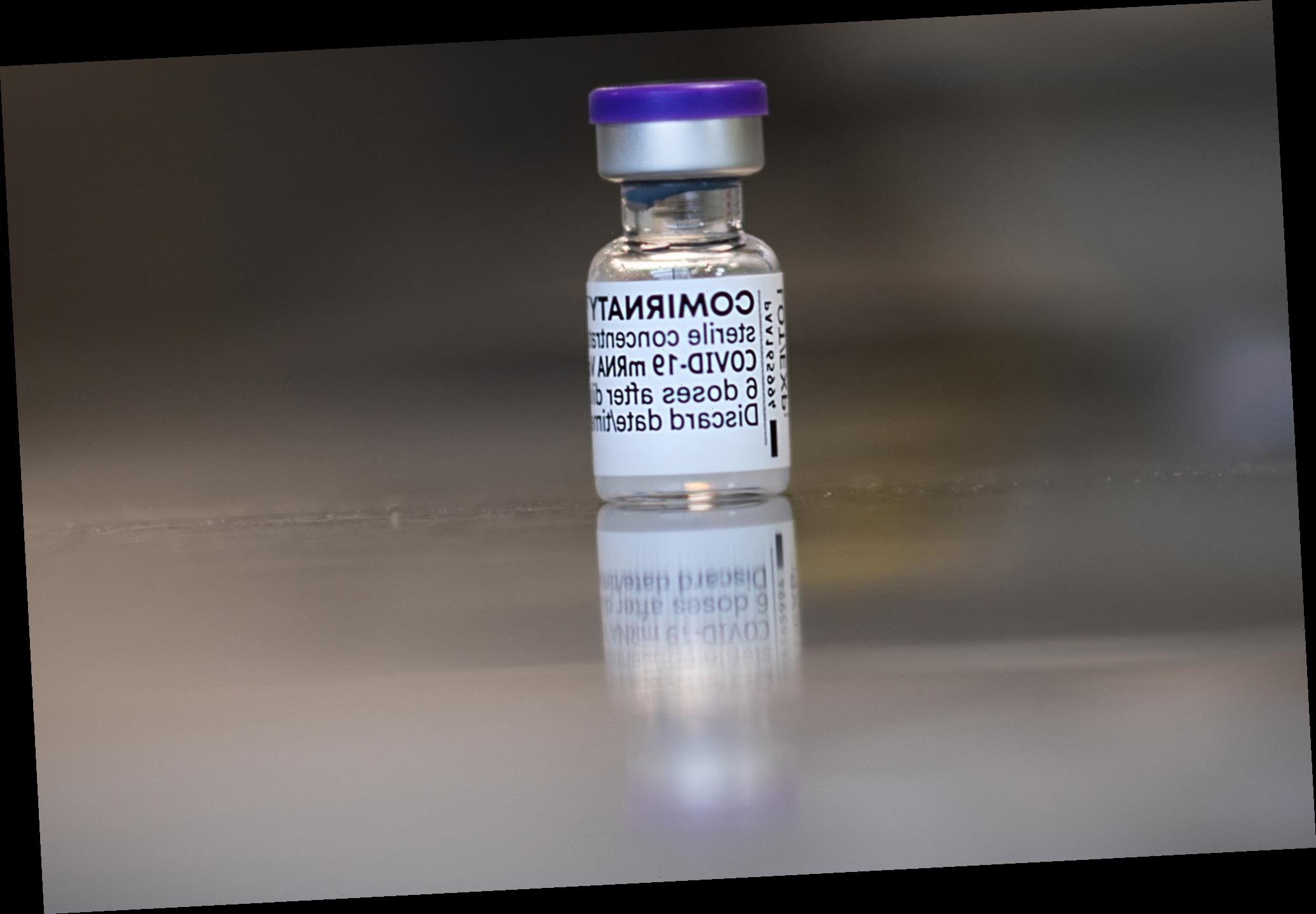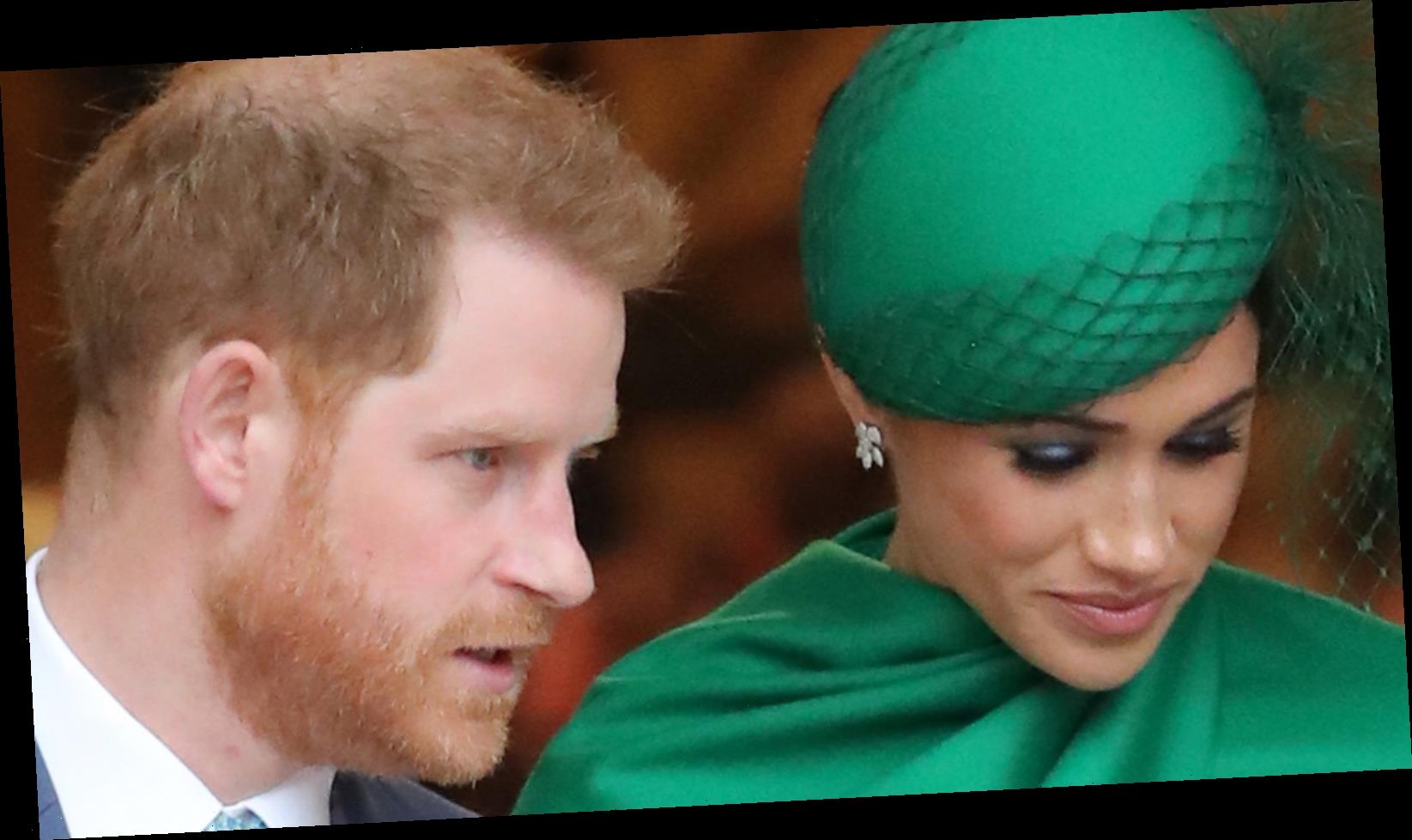SPOILER WARNING: Do not read if you have not seen Season 1, Episode 4 of “The Falcon and the Winter Soldier,” streaming now on Disney Plus.
Arguably one of the grittiest moments in the MCU films — or what counts for gritty in this world, anyway — comes in the form of Steve Rogers, Bucky Barnes and Tony Stark duking it out at the end of “Captain America: Civil War.”
After Helmut Zemo (Daniel Brühl) reveals that a brainwashed Bucky Barnes (Sebastian Stan) had years ago murdered Tony’s parents, Tony is furious to learn that Captain America had known about it all along, pummeling Steve and blasting off Bucky’s bionic arm. The protracted fight culminates in a question, as Steve wrenches off Tony’s Iron Man mask and raises his shield high above his head, seemingly ready to bring it down on a prone, helmet-less Tony: Could Captain America actually bring himself to deliberately murder someone?
The answer in the movie, of course, is no — despite the momentary terror we see on Tony Stark’s face at the possibility, Steve Rogers would never. As Marvel’s most upstanding character, he is too pure, too solidly a “good man” — as Super Serum inventor Dr. Erskine would tap on Steve’s chest and say — to bring the shield down on Tony’s face; instead he uses it to lights-out Iron Man’s suit and end the fight.
“The Falcon and the Winter Soldier” Episode 4 raises the question again, this time with Captain America’s shield in John Walker’s (Wyatt Russell) hands. But this is a post-Blip, post-Steve Rogers world — one without the original Cap’s lofty moral absolutism. And what Walker chooses to do with the shield in the last few minutes of this week’s installation runs counter to everything we’ve been conditioned to think that circle of vibranium stands for.
Here are Variety’s biggest questions after watching Episode 4:
Did Captain America really just kill a man in broad daylight?
Walker is feeling the pressure to perform. Sam Wilson (Anthony Mackie) and Bucky refuse to team up with him. When the Dora Milaje show up from Wakanda to arrest Zemo, he can’t hold his own in a fight. He signs postcards of his face for passing fans but feels powerless and perhaps a bit like a fraud, lacking the Super Soldier strength to do what his predecessor could. Steve Rogers’ shadow looms large.
After he, Sam and Bucky clash with Flag Smasher leader Karli Morgenthau (Erin Kellyman), and Zemo takes the opportunity to destroy the remaining vials of Super Serum, Walker spots one on the ground and pockets it. But should he inject himself with it?
“Power just makes a person more of themselves, right?” Lemar Hoskins, aka Battlestar (Clé Bennett), tells Walker. “You consistently make the right decisions in the heat of battle.”
The Afghanistan vets are no strangers to tough choices, and Walker admits, “Being Cap is the first time I’ve had the chance to do something that actually feels right.”
But as Walker hovers menacingly over a Flag Smasher at the end of the episode — having decided to infuse himself with Super Serum and feeling vengeful after Karli unintentionally kills Lemar — he makes a shocking, irreversible choice, violently murdering (and possibly decapitating?) a man with the shield in view of dozens of passersby watching in horror, no doubt leading to viral videos of Captain America killing a man with a symbol of hope and honor. Will the U.S. government consider taking back the shield, or will it condone such acts in the name of fighting terrorism? Will it serve to further alienate the new Cap with the public? And what does this government-controlled, funhouse mirror version of Captain America even mean anymore?
As Sam’s sister Sarah (Adepero Oduye) tells Karli during a separate conversation, “My world doesn’t matter to America, so why should I care about its mascot?”
Should John Walker have taken the Super Serum?
Sam Wilson is undoubtedly the moral center of the show, now that Steve Rogers is gone. When Zemo asks Sam if he would have taken the serum, he doesn’t hesitate in his response. Not taking the serum, like Lady Galadriel declining the power of the One Ring in “Lord of the Rings,” is positioned as the right thing to do. All the existing Super Soldiers — Bucky, the Flag Smashers, John Walker — have blood on their hands.
The episode spends time engaging in a not-so-subtle conversation about power and inequity, and the irony in assuming power in order to democratize the playing field. The Flag Smashers are trying to help people who have been displaced after the Blip returned half the world’s population to the living, and Sam tells Karli that he agrees with her fight, just not the way she’s fighting it.
“The very concept of a Super Soldier will always trouble people,” says Zemo, no upstanding moral philosopher himself. “It’s that warped aspiration that led to Nazis, to Ultron, to the Avengers.”
“Hey, those are our friends you’re talking about,” responds Sam. “The Avengers, not the Nazis,” Bucky is quick to add.
“The desire to become a superhuman cannot be separated from supremacist ideals,” says Zemo.
The idea runs counter to what MCU fans have been conditioned to do for the last decade: root for the super people. But what is the conclusion we should arrive at here — that no one but Steve Rogers was worthy of that power? Even in one of Marvel’s first TV shows, “Agent Carter,” Peggy Carter opted, in the Season 1 finale, to throw the last vial of Steve’s blood into the river so that the government couldn’t try to replicate the Super Serum — the underlying assumption being that humans are so flawed that they cannot be trusted with literal power. “WandaVision” certainly also made the case recently that with great power, comes great potential to unwittingly harm others, even if you think you’re one of the good guys.
Who knew Bucky’s new Wakanda-Made bionic arm… detached?
In any case, Ayo (Florence Kasumba) and the Dora Milaje are a welcome sight, and a reminder that Bucky was once in the care of the Black Panther and his genius of a sister, Shuri, who created a whole new bionic arm for old Buck. In the opening scene, we see a flashback to six years prior, with Ayo finishing her cleanse of Bucky’s brainwashing and freeing him of Hydra’s grip once and for all.
But the Wakandans are not at all pleased to see that Bucky and Sam have sprung Zemo from prison, and Ayo gives the “White Wolf” eight hours to accomplish what he needs to do before she comes to collect her bounty.
That time runs out fast. No thanks to Walker’s bravado and his very annoying need to try to control every situation, Sam’s attempt to reason with Karli falls short when Walker tries to arrest her. After Walker patronizingly tries to stop Ayo from coming for Zemo and a fight breaks out, Bucky — not after taking some measure of joy in seeing Walker get knocked about — tries to talk to Ayo, to no avail. Then, in one swift move, she does… something to Bucky’s shoulder, and his metal arm falls to the ground. Did he know they could do that? No! A surprise feature! What else can Bucky’s new arm do that we didn’t know about?
Where did Zemo go?
Zemo, ever sneaky and opportunistic, uses the distraction of the fight to pull an El Chapo, as Sam puts it, and escape down the plumbing of their Latvian hotel bathroom.
Knowing Zemo, he’ll likely use his massive wealth to escape back into the shadows.
What else did he learn about Karli’s surrogate mother, Mama Donya, that he is purposefully hiding from Sam and Bucky? Now that he believes he’s destroyed the rest of the Super Serum, will he continue his pursuit of the Flag Smasher, or will he try to find the Power Broker?
With two episodes left in the series, we’ll soon find out.
“The Falcon and the Winter Soldier” streams new episodes Fridays on Disney Plus.
optional screen reader
Read More About:
Source: Read Full Article

